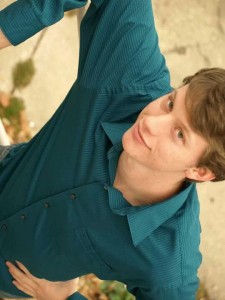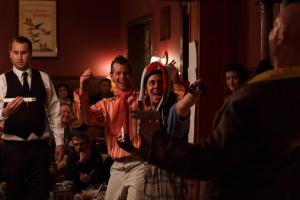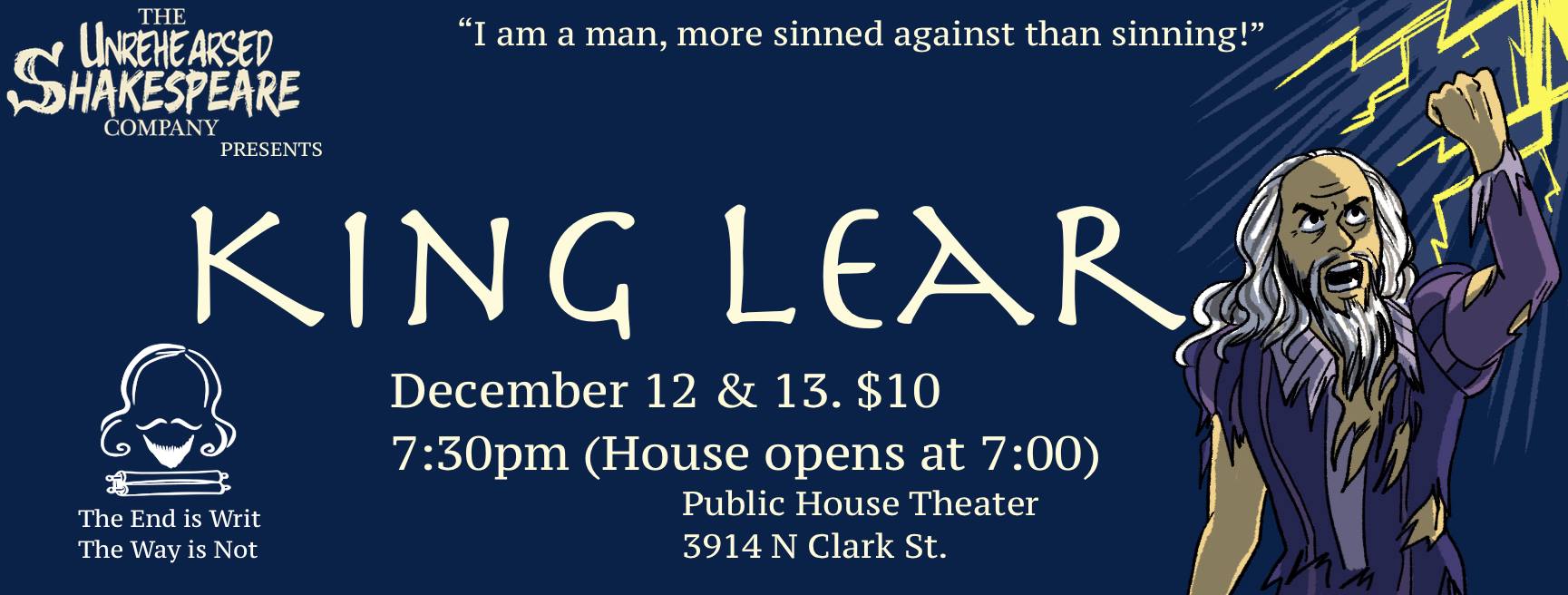
JJ is an Unrehearsed veteran of seven years who has helped to spread the technique as far west as Las Vegas. He is currently working with the Milwaukee Rep’s The Foreigner, playing until December 18th. Also keep an eye out for upcoming productions of Henry VI part 1, an unrehearsing of the traditional play using the first folio technique; and Blade of the Child, an original play by JJ, coming to Milwaukee this summer.
You can see him as a special guest performer in King Lear on Monday, December 12th.
Q: What first turned you on to Shakespeare?
JJ: I’ve always been interested in poetry. I learned about Shakespeare in high school and almost immediately got to perform it. The second show I ever did was Merry Wives of Windsor. I was drawn to the visceral energy that one can feel speaking in iambic pentameter and I’m constantly in awe of the different metaphors that pop up in Shakespeare.
Q: How has your approach to Unrehearsed altered over the years?
JJ: One of the best parts of Unrehearsed is giving and receiving stage directions, and I’ve become better at spotting the places for them. It creates a great spontaneity that you don’t typically see in more traditional performances of classical pieces. Also, I’m hoping that the more I use First Folio Technique the more grounded I can become while using it. It’s easy to get caught up in the hullabaloo and forget to breathe or flail around making gestures that aren’t supported by the script. I’m hoping that in King Lear I’ll have a bit more economy of action.
Q: What, to you, is the most intriguing thing about King Lear?
JJ: The multi-tiered story that provides us with no specific protagonist, but instead we have arguments for any and all of the characters to be the “main” focus. It gives the opportunity for an ensemble to shine as a whole rather than some of Shakespeare’s other plays like Hamlet or Macbeth.
Q: How would you compare directing or teaching Unrehearsed to performing it? For that matter, how does Unrehearsed directing compare to more conventional productions?
JJ: It’s akin to driving a car. When learning there are so many individual things that have to go right (i.e. I have to shift into gear, put my foot on the gas, oh I forgot to adjust my mirrors, etc.). When you’re performing, there isn’t time to focus on these individual parts and instead you have go with the flow of how things are happening in the “now”. I think it takes performing in the actual shows to really understand how everything fits together, so when you’re teaching/directing one of these productions you have to accept that students new to the technique are going to miss some steps until they have the opportunity to make some mistakes in a performance.
I’ve only recently started directing traditional theater projects, and I find that whenever I’m stuck, I always go back to unrehearsed Shakespeare. Who’s speaking to who? How close or far away from each other do these characters need to be? Could any part of this be to the audience? These are questions we’re always asking ourselves while looking at our tracks in unrehearsed and I think they are excellent starting points for scene work.

Q: What’s your favorite Unrehearsed role to date?
JJ: Proteus, nothing beats winning a crowd over that is actively booing you.
Come see JJ try to win over the crowd Monday, December 12th!
=====

